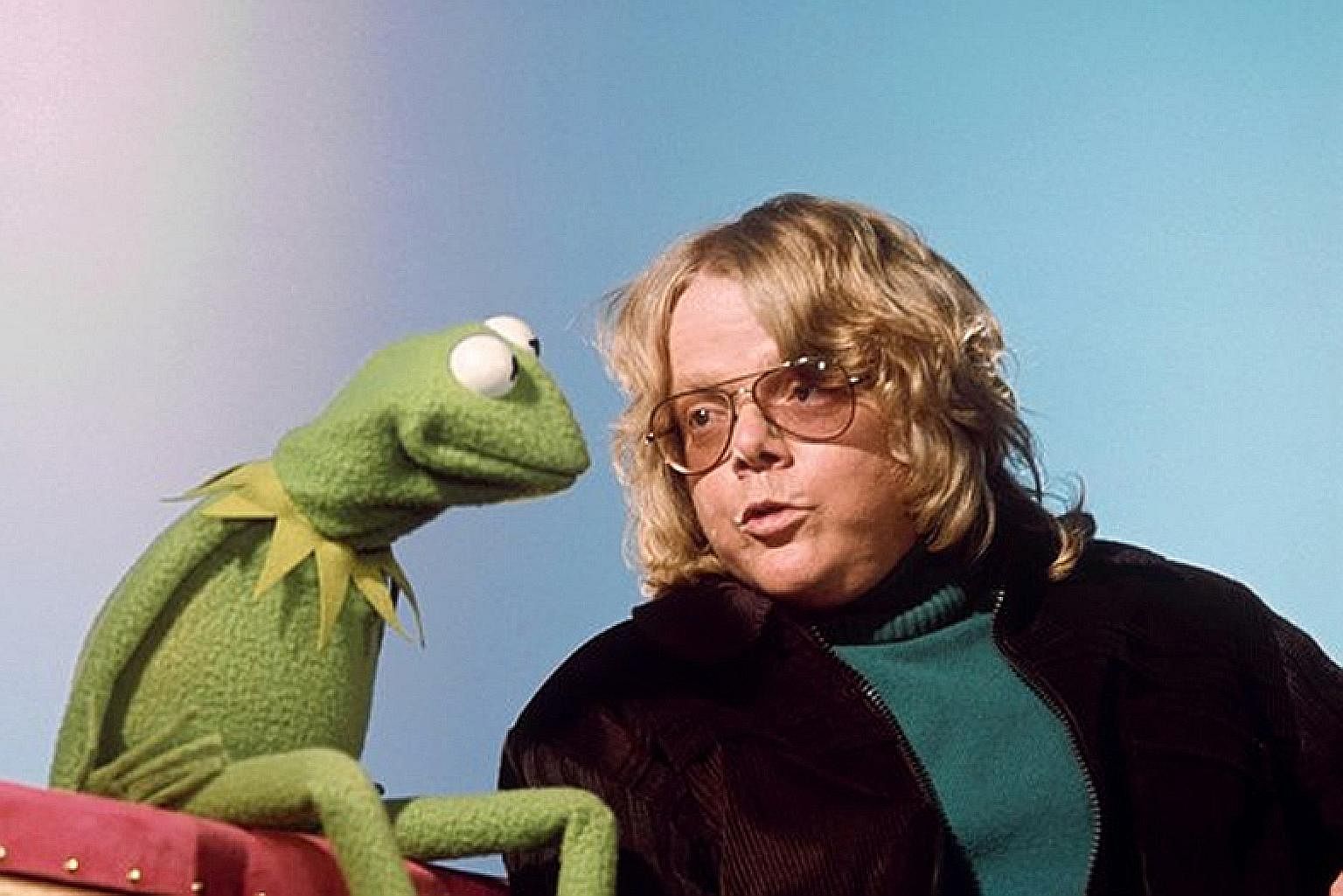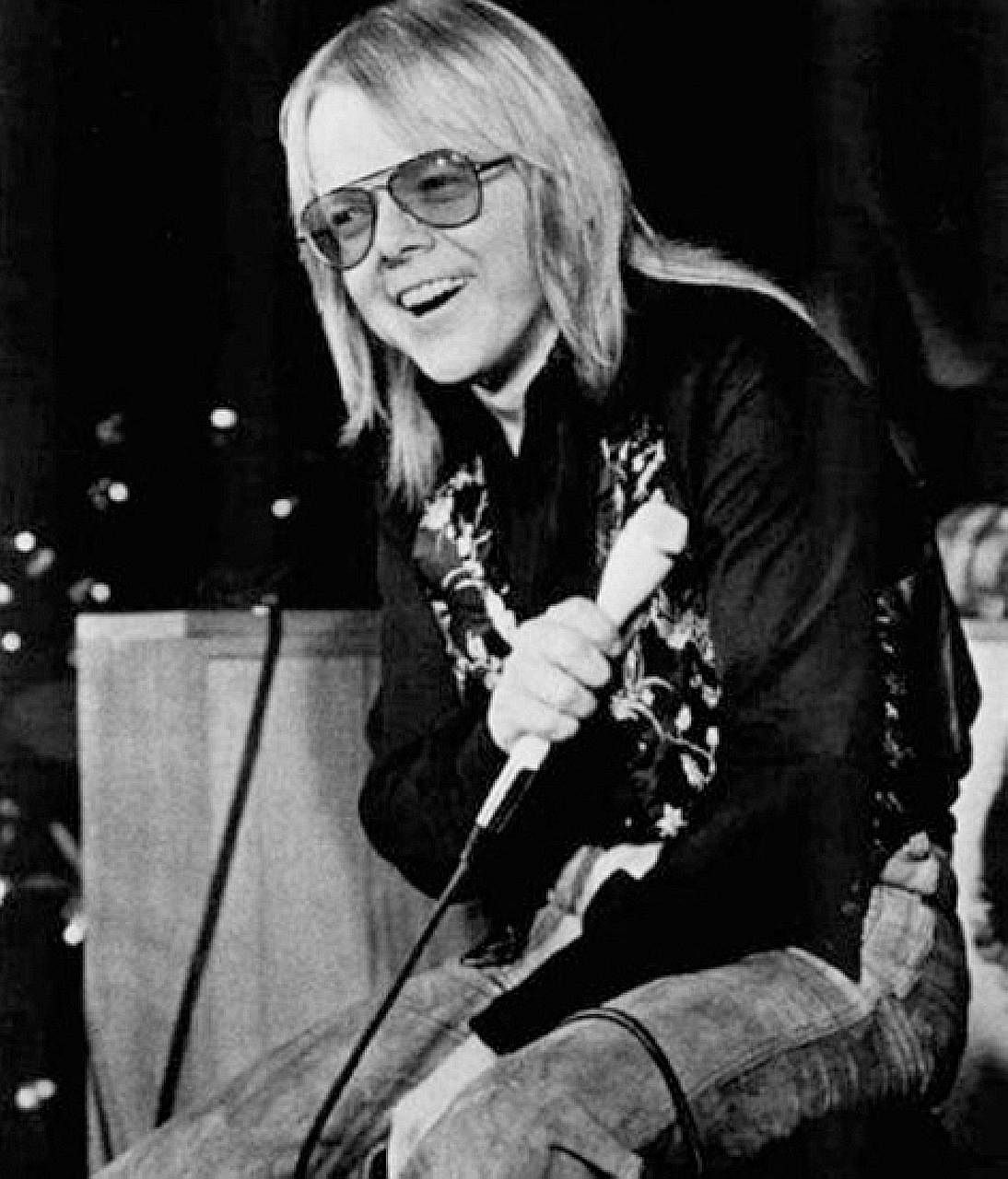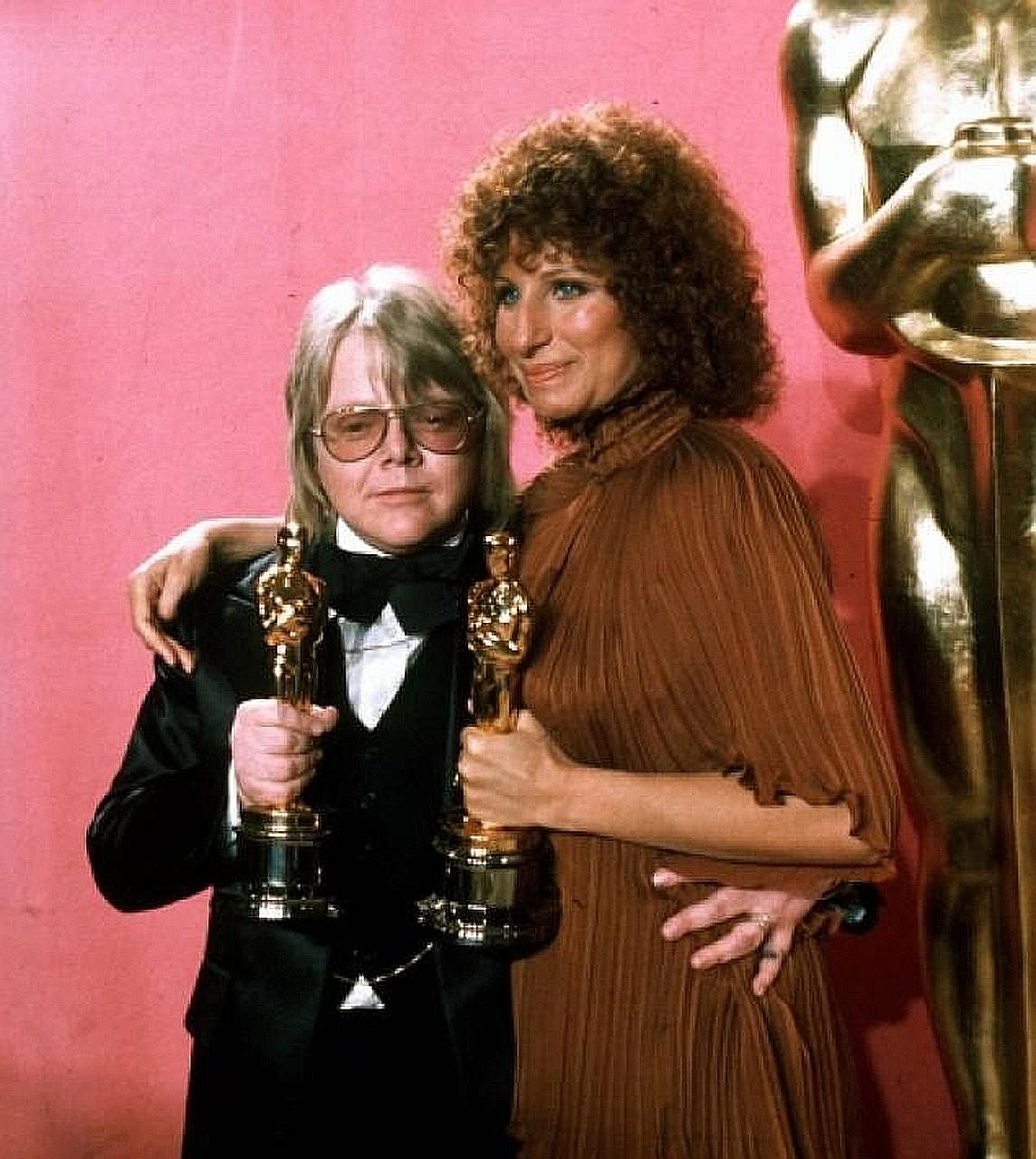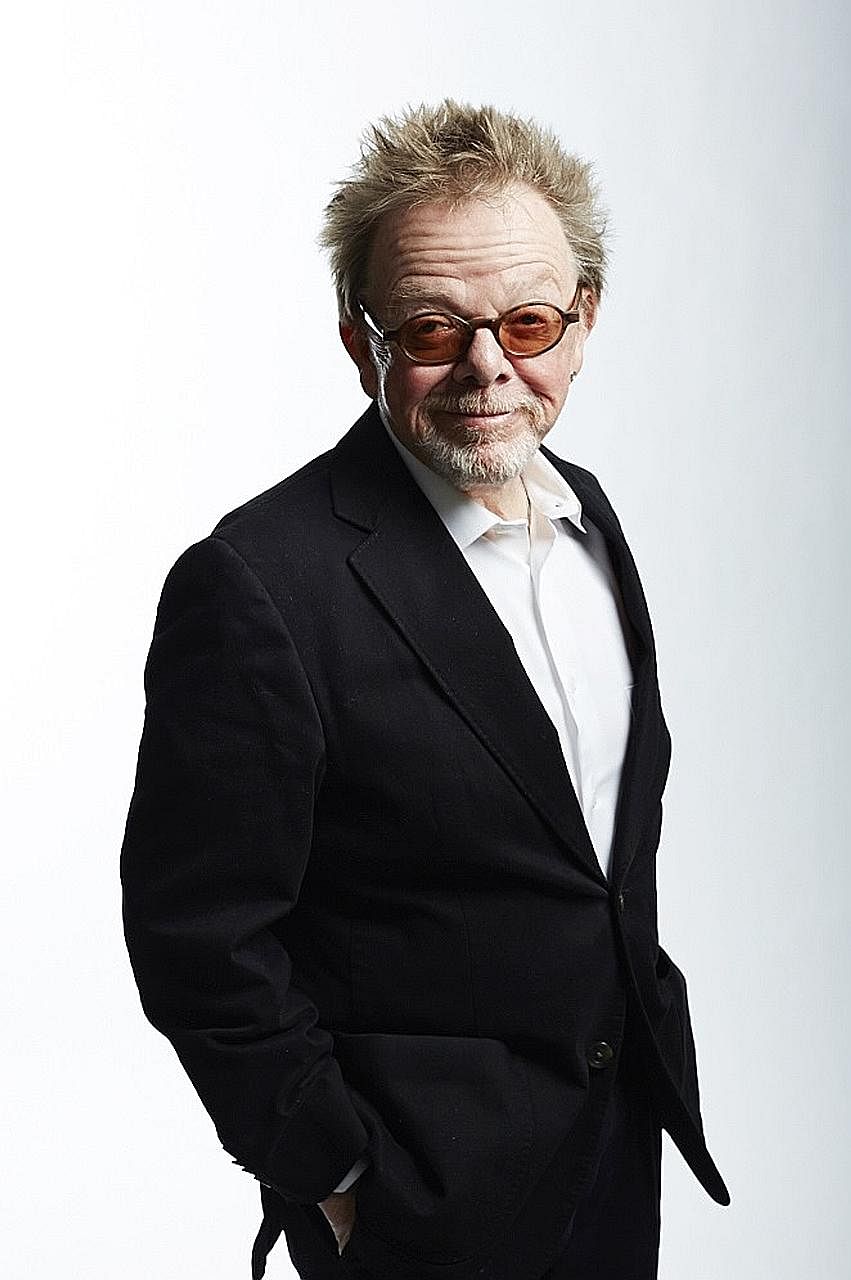It Changed My Life
It Changed My Life: US songwriter Paul Williams is Still Alive... and sober
Songwriter Paul Williams turns his life around after losing a decade to drugs and alcohol

Paul Williams is telling a joke, except that he is dead serious.
"You know you're an alcoholic when you misplace a decade," he says over the phone from California. "The 1980s were gone for me."
A dalliance with alcohol, cocaine and other chemicals turned into a long nightmare which slaughtered his sanity and lucidity. There were years, he says, when somebody else was using his body.
It destroyed a wonderful career.
Those who remember the 1970s will remember Williams as an all-purpose celebrity, the 1.57m blondie who was always on TV and in movies like Smokey And The Bandit, Phantom Of The Paradise and Battle For The Planet Of The Apes.
More than just a supporting actor, however, Williams was one of the most amazing songwriters of the era. He has written hits for The Carpenters (Rainy Days And Mondays, Close To You and We've Only Just Begun), Helen Reddy (You And Me Against The World), David Bowie (Fill My Heart), Barbra Streisand (Evergreen) and Kermit The Frog (The Rainbow Connection).

Fortunately, the chemical toxicity did not kill Williams.
"One day, I hit my knees and I turned to a bunch of strangers and said, 'I'm dying and I don't know what to do and I need your help.'"
He found in the recovery community "a one-on-one connection with the world".
"It was like water and air and food. It was soul food and it was everything that I was trying to find in the drugs," says Williams, who has now been sober for 26 years.
"That's why I think everybody deserves a second chance. Everybody deserves a chance to clean out the records of their past, go forward and do something productive with their lives and that's one of the reasons why I'm happy to come to Singapore," says the 76-year-old, who gave an intimate concert at the Goodwood Park last night.
The event was organised by charity outfit JC Trust Ltd to raise funds for The Yellow Ribbon Fund-Singapore Academy of Law Skills Training Assistance to Restart Bursary. Started in 2014, the bursary helps financially disadvantaged ex-offenders get an education and skills training at local universities and private institutions.
The life that he has been given in recovery, he says, has very little in common with the last 10 years of his drug-addled one.

There are two things in this world that he is now intensely passionate about. "The number two thing is the rights of music creators," says the president of American Society of Composers, Authors, and Publishers (Ascap).
"And the number one thing will always be recovery," adds Williams, a graduate of the Drug And Alcohol Counselling Certification programme from the University of California, Los Angeles.
Born in Nebraska, he is one of three sons of an architectural engineer and a housewife. The family led a peripatetic lifestyle, moving wherever his father could find construction work.
"I went to nine schools by the time I was in the ninth grade. I was always the littlest kid in school, always the new kid in school," says Williams, who had a growth disorder. Instead of helping him grow, hormone shots he was given had the opposite effect.
Life at home was troubled because of his father's addiction to alcohol. He would wake Williams up in the middle of the night and make him sing Danny Boy.
When the songwriter was 13, his father drove his car into the abutment of a bridge and died a week later. "He was almost always driving under the influence. He was a sweet man but he just never dealt with his alcoholism and it killed him."
Williams was shipped off to live with his father's half-sister and her husband in California, while his two brothers remained with their mother. "One of my brothers is dead. He was a nuclear and atomic engineer and was in recovery. My younger brother Mentor Williams is a wonderful songwriter and is also in recovery... I think we're proof that there is a genetic propensity to carry on the alcoholic gene, the disease."
California changed his life drastically. He felt like an outsider - a teenager trapped in a child's body - in Long Beach where many walked around with impressive physiques and great tans.
"I looked like a light in a refrigerator. Not only was I tiny but also I had a slow body clock so I didn't hit puberty until I was out of high school," he says.
Things at home were not any better. "I just remember going to bed at night and listening to see if my aunt and uncle were fighting and wondering how many hours I had before I had to get out of the house. I wanted to get out of the house in the morning before my uncle was awake."
The moment he graduated from high school in 1958, he left and became a struggling actor, sometimes playing teens even though he was in his 20s.
In 1966, something happened which made him turn to songwriting.
He was working on a movie called The Chase - about rival gangs terrorising a small town - starring Marlon Brando, Jane Fonda, Robert Redford and Robert Duvall.
"They were shooting a scene where Robert Redford's character, who's named Bubba, was hiding in this burning junkyard that my character and these other teenagers had set fire to," he recalls.
He was strumming a little ditty he had composed - "Bubba, Bubba, Bubba, Bubba, come out where you are or we'd come and get you" - when Duvall walked past.
Fascinated by what he heard, Duvall took him to the director, Arthur Penn. On the spot, Penn got the crew to light fires behind Williams and shoot him singing the ditty.
"I'd thought I was going to have a career as an actor, but what happened was that career went away... and so I went to the one thing that gave me any sense of comfort, and that was my silly little guitar and doodling.
"It was an amazing and beautiful accident. If you choose to think of it in a spiritual fashion as I do, I think that I was being guided to what I was put here to do."
Although he was never trained in music, he started writing with Biff Rose whom he met on a TV comedy programme. They wrote Fill Your Heart, which appeared in Rose's debut album and which was later covered by Tiny Tim, and David Bowie.
On Rose's recommendation, Williams turned up at A&M Records in a borrowed car and was hired as a songwriter. Together with songwriter Roger Nichols, he started writing some of the biggest hits of the 1970s.
One of them was We've Only Just Begun, written for a wedding-themed commercial for Crocker National Bank.
Richard Carpenter of The Carpenters saw the ad, and asked Williams if a full-length version - the one in the commercial had only two verses - was available.
Williams and Nichols went to work on it. We've Only Just Begun not only became one of The Carpenters' biggest hits, but also is one of the most enduring tunes of all time and is still played today at countless weddings.
Soon Williams was also writing for films - Cinderella Liberty, A Star Is Born - and TV serials including the theme song for The Love Boat.

"Between The Carpenters and Three Dog Night and Helen Reddy and (Barbra) Streisand, and the people that began to line up recording the songs that I wrote... all of a sudden I had a career, a life that I couldn't have imagined."
He popped up everywhere.
"I did 48 Tonight Shows," he says, referring to the popular variety programme hosted by Johnny Carson. "I finally felt like I fit in because I had been such an outsider for so many years. I got comfortable, and I loved it and I had great fun."
Perhaps he loved it too much.
"I think I became as addicted to the attention I was getting as I became addicted to the drugs and alcohol," says Williams, who used to go to sleep with a 2g bottle of cocaine in his hands and start his mornings with a glass of vodka in the shower.
He pauses to emphasise one point.
"The chemicals were never a part of my creativity. If anything, they got in the way. I would write and I'd get high and I'd write and it would make no sense, so I'd get a little sleep and I'd get up and write something for half an hour sober that'd end up being the song."
One day, a friend told him that he was so spooked by Williams' destructive ways that he got together a bunch of sober alcoholics to pray for him.
"I'm convinced that that energy had something to do with the fact that two weeks later, in a blackout, I called a doctor and said, 'I want to go to treatment.'"
And he has been sober since.
"When I got sober, people said, 'Are you writing songs?'... I was like, 'You know what? I'm done. Until I fall in love with it again, I just want to work in recovery."
Which was what he did. He wrote a book on recovery called Trust And Gratitude with good friend Tracey Jackson and jumped on planes whenever called upon to talk about recovery.
Of late, however, his career has enjoyed a revival. In 2011, film-maker Stephen Kessler tracked him down to make a documentary about his life called Paul Williams: Still Alive.

The no-holds-barred documentary received rave reviews and became a festival favourite.
Phantom Of The Paradise, a 1974 horror musical directed by Brian de Palma, also came back to haunt - albeit in a good way - Williams, who not only starred in the movie but also wrote the music.
A box office dud everywhere except for Winnipeg and Paris, the movie has an army of fans, including Daft Punk and Guillermo del Toro.
The French electronic duo got Williams to contribute lyrics and vocals to two tracks, Touch and Beyond, on Random Access Memories which won a Grammy for Album of The Year in 2014.
Meanwhile, Williams has just finished helping another of his fans, Mexican film-maker del Toro, adapt his hit movie Pan's Labyrinth for the stage.
The songwriter, who has two grown children and is married to writer Mariana (his third wife), says he is in a very good place now.
Nature, he says, abhors a vacuum.
"For decades, I tried to replace the alcohol but it would always come back because I didn't replace it with anything else."
But when he replaced the poison with a programme for living, he says, he suddenly had a road map.
Asked if he has found The Rainbow Connection - his favourite song - he laughs and says: "I don't know if I have it but I think there's pretty good evidence that The Rainbow Connection is working really beautifully in my life right now."
Correction note: An earlier version of this story referred to TV host Johnny Carson as Tony Carson. We are sorry for the error.
Join ST's Telegram channel and get the latest breaking news delivered to you.
A version of this article appeared in the print edition of The Sunday Times on November 13, 2016, with the headline It Changed My Life: US songwriter Paul Williams is Still Alive... and sober. Subscribe

